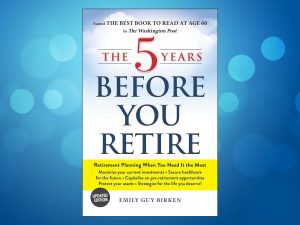By Christine Taylor
There is a well-known phrase, “Age is an issue of mind over matter. If you don’t mind, it doesn’t matter.” We’ve all heard speakers and seen advertisements in magazines that talk about how to fight the aging process. But for some of us, it’s easier said than done.
Stigma exist in our society at large and our families that portray older adults, as non-contributing, weak, frail, forgetful or too old to learn.
Sometimes these limit our financial position, housing options, ability to assume responsibility, some-what incompetent or without skill, and influence our chances of getting jobs as ‘mature workers.’ Quite simply, ageist messages are everywhere and we need to look deeper into the harmful impact they have.
According to the World Health Organization, ageism refers to “stereotypes (how we think), prejudice (how we feel), and discrimination (how we act) towards others or oneself based on age.” In a survey of Canadians aged 66 years and older, 63% of those surveyed indicated that they have experienced ageism in some way. In fact, 74% of Canadians reported that ageism is still present in their workplace.
The wrong message. Ageist thinking has a much larger impact than merely the need to change our view of the aging process as there is ample research about its negative impacts. Yet, many people fail to equate ageism as similar in seriousness to sexism and racism and are much more tolerant of it. (51% of those surveyed).
Ageist messages can have a direct impact on older adults’ general well-being, leading to a poorer self-image and less self-confidence. It has been found that ageist beliefs can also impact older adult’s performance on memory tests. Older adults who are frequent recipients of ageist attitudes are also more likely to become depressed, isolated and lonely—loneliness can be as dangerous as smoking 15 cigarettes a day.
Indeed, a Yale University study found that seniors who believe and internalize ageist attitudes have a shorter life expectancy. Other research found that individuals who had positive views of growing older lived 7.5 years longer (all other things being equal). Additional work also determined that people with positive attitudes about aging are happier, age better, are cognitively shaper, and are in better physical health. While many typically think of blatant and more obvious forms of ageism such as fashion or skin care ads that promote ‘fighting the signs of aging’ and ‘erasing wrinkles’, there are other less subtle influences.
Benevolent ageism, also known as compassionate stereotypes foster the erroneous belief that all seniors are ill or on the path to being unwell, vulnerable, and in need of assistance. This thinking perpetuates the misconception that aging is something to be feared.
Positive stereotypes, as the term implies, are subjectively favourable views of seniors, such as ‘all older women love baking’ or ‘all older adults become wise in later life and want to volunteer to help in the community. While some positive stereotypes can lead to benefits, some seniors prefer to avoid being like others and prefer to find their own way.
The moral of the story. Try and avoid painting all older adults with the same brush and rather focus on personhood. Seniors are more dissimilar than they are similar across a range of variables—health, finances, housing situation, political opinions, hobbies, language, marriage, widowhood, work status, activity levels, mobility, and volunteering. While there are definitely commonalities, seniors are an extremely diverse population and we need to acknowledge and appreciate their myriad of differences.
Case in point…some men and work are still working full time or going to school at 75 years of age. Many continue to challenge them cognitively, not to mention believe that their occupation gives sense of purpose and enjoyment. Other 65-year-olds are happily retired, play golf multiple times a week, volunteer and feel satisfied filling their day with friend and family-based activities. Other older adults live with a chronic illness and require support at home or in a care facility.
Better for all. From a caregiving perspective, those who care for loved ones and have ageist beliefs report more of a caregiver burden. I n terms of formal care from physicians, some physicians advise older adults that their condition is ‘due to their age’, as if aging is a disease.
And there are cases in which healthcare providers are advised to ‘ration care’ and prioritize the care of younger individuals over that of seniors. It is not uncommon for healthcare providers and ignore the individual and field questions to their family members in front of them, as if they were not there. This is demoralizing, disrespectful, and insensitive. What needs to be done?
• Challenge myths and stereotypes: Reflect on your own attitudes. No longer blindly accept what you used to think about the aging process to be true. Educate yourself, do research, talk to older adults and ask them about their experiences.
• Speak up: Voice your concerns about ageist beliefs, messages, and attitudes.
• Put yourself in their shoes: Imagine being a physically healthy, sharp 80-year- old person, who strangers who wrongly believe is challenged.
• Create value: Studies show that when younger people spend time with older adults, they have more positive attitudes about aging as they learn about their contributions and value in society.
• Involve yourself in: mentorship, shared community events where youth learn from those with experiences, young children visiting long-term care residents and older adults learning how to use social media.
The end game
Everyone, regardless of age, should feel valued, respected, and recognized as an individual who has unique personality traits, abilities, and interests. Let’s to do our part to be considerate, speak out when necessary and encourage positive thinking and messaging whenever possible.
Chistine Taylor. A college professor, and owner of Taylored Consulting helping seniors downsize, age in place, relocate, and navigate the healthcare system.













